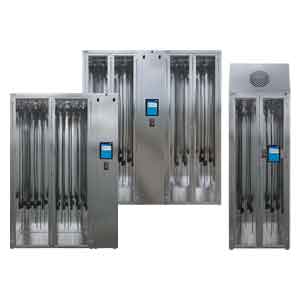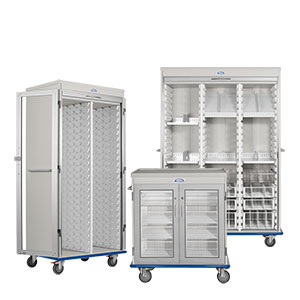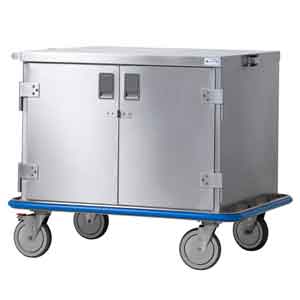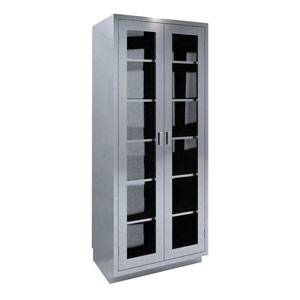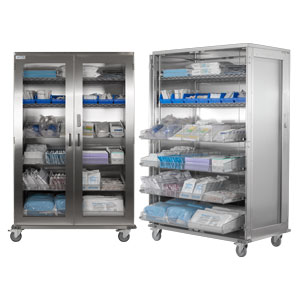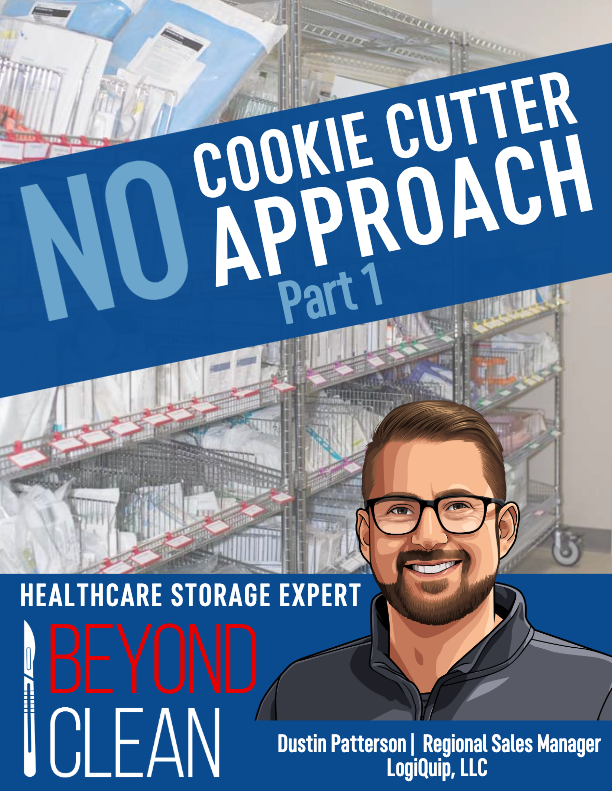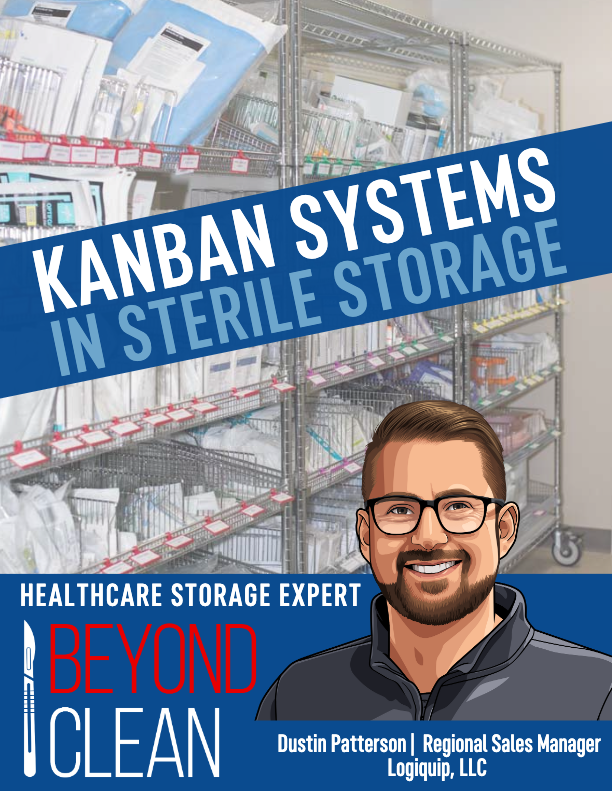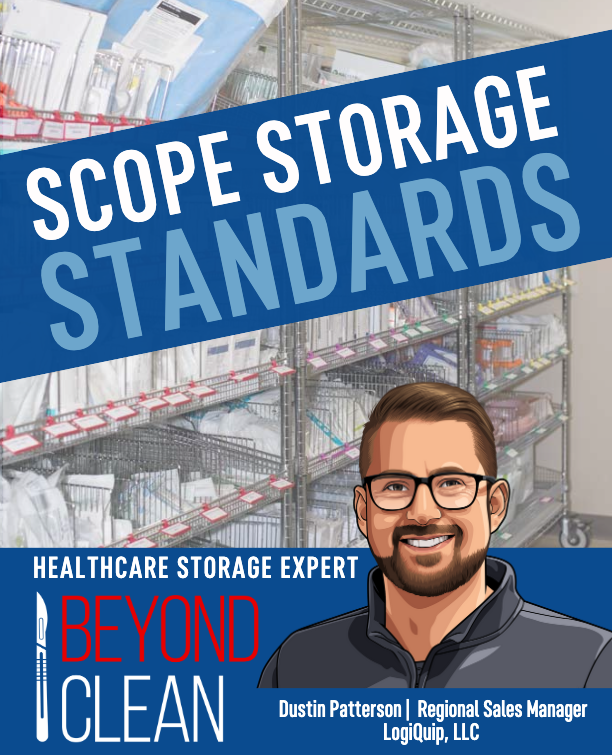Set Up For Success
Dustin Patterson | Regional Sales Manager, LogiQuip LLC.
It is imperative to maintain the right conditions for the storage of sterile supplies, surgical instruments, implants, and surgical set-ups. Storing these items in a dedicated space that is climate- controlled sets you up for success while extending supply shelf- life and helping to ensure patient safety.
To begin, a dedicated sterile storage room should be placed in a clean, dry area with minimal foot traffic. The CDC recommends that the walls and ceilings be made of non-shedding materials that can withstand cleaners and disinfectants.
In addition, the ANSI-AAMI ST97 2017 guidelines recommend that shelves be at least 10’’ off the floor, and least 18’’ from the ceiling or sprinkler heads, and 2’’ from outside walls to protect from moisture and debris. If your location does not have the space for dedicated sterile storage, use covered or enclosed racks.
Next, controlling the climate in sterile storage areas will help to mitigate sterile items from becoming compromised. ANSI/ASHRAE/ASHE Standard 170- 2017 Table 7.1 Ventilation of Healthcare Facilities Requirements for Sterile Storage Rooms includes the following recommendations:
- Positive Air Pressure Relationship to Adjacent Areas
- Minimum outdoor air exchange 2 per hour
- Minimum total air exchange 4 per hour
- Maximum relative humidity 60%
- Temperature 75° F/24° C
Last, follow your facility’s standard operating procedures (SOP) for monitoring and documenting the temperature and humidity daily. This SOP should also include directions for what you need to do if your humidity and temperature fall outside of the accepted norms.
Dustin Patterson is currently the Mid-West Regional Sales Manager with Logiquip Healthcare Storage Solutions, a leading provider of high- quality, future focused storage systems designed exclusively for use in the healthcare environment. Logiquip is based out of Kalamazoo, MI and has served healthcare organizations across the US for 30 years. Dustin brings over 12 years of experience in space planning and healthcare storage. He has acted on behalf of LogiQuip as the vendor liaison to the AHRMM Wisconsin Chapter, a leading membership group for healthcare supply chain professionals. Working closely with many hospitals and surgery centers, Dustin has developed tailored solutions using a mix of best practices, Lean principles, and industry-leading storage equipment. He has also worked with many Sterile Processing Departments to maximize storage spaces, balancing trade-offs between high-capacity storage layouts and workflow efficiencies.


